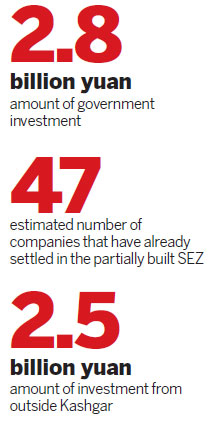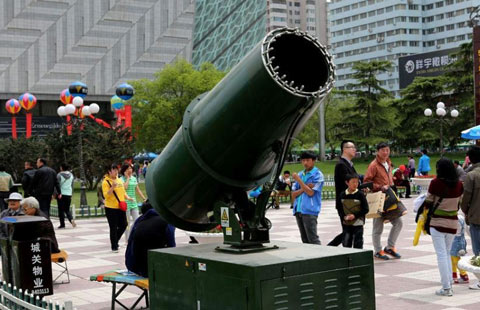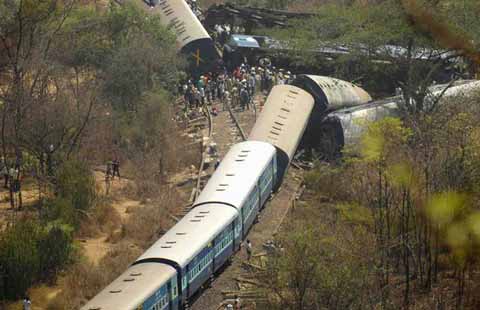Xinjiang hopes to prove that the west is best
Updated: 2014-04-30 08:41
By Cui Jia (China Daily)
|
||||||||
|
 |
|
Girls from the Uygur ethnic group have fun in the center of Kashgar. Feng Yongbin / China Daily |
China and Pakistan have already agreed to build a trade link to connect Kashgar with the Pakistani deep-sea port of Gwadar, which has been under the management of China Overseas Holdings Ltd since February 2013, to step up bilateral economic cooperation. Eventually, China will be able to speed up the pace at which it moves the oil it imports from the Middle East to Xinjiang, and to send exports to Europe and Africa far more quickly via Gwadar. However, at present the basic infrastructure is badly underdeveloped.
"The infrastructure of the SEZ will be completed in 2015. So far, the government has invested 2.8 billion yuan ($448 million) in the new zone, and has also attracted outside investment worth 2.5 billion yuan," said Yao Wenkai, director of the Development Reform and Economic Development Bureau of the Kashgar SEZ.
Yao said that more than 47 companies have already settled in the partially built SEZ, most of them attracted by preferential policies adopted by the central and regional governments, such as exempting businesses from corporate income tax for the first five years after they move into the zone.
Investor confidence
However, a number of terrorist attacks in Kashgar prefecture in 2013 have affected investors' confidence, a challenge Shenzhen didn't have to face. "We have to admit that the security issue is something both employers and employees will have to consider before moving to Kashgar," Yao said.
On April 23, 2013, 15 people were killed in an attack in Selibuya township in Bachu county. Nine assailants were shot dead by police, who claimed the group was planning a much larger attack in Kashgar city.
On Dec 15, two police officers were killed by a group armed with knives and explosives at a village in Shufu county near Kashgar city, the site of a newly constructed logistics center for the distribution of goods from southern China to neighboring countries, which became operational in 2013.
Dimulat Omar, director of Ethnology and Sociology College at Xinjiang Normal University, who visits Kashgar city every year, regards it as a key place for ethnic culture, not only in Xinjiang, but also in the central Asia area. "So it draws great attention from all circles. Everyone keeping an eye on developments in Kashgar is hoping to see rational development there," he said.
He suggested that the city's ethnic features are advantages, just like its geographical advantage. The tourist programs, industrial projects and the real estate industry should all be considered in terms of the city's overall image.
"The government has made great efforts to protect the ethnic elements, but there's still a lot to do."
Kashgar is famous for these features, which should be preserved correctly and displayed across the city.
Dimulat also said Kashgar as a city is good at integrating modern and traditional elements because it has been a place of integration for centuries. "It has a profound cultural accumulation. As long as the development plan doesn't destroy the traditional aspects, the city will develop well," he said.
Turwenjan Turson, a researcher at the Sociology Institute under Xinjiang Academy of Social Sciences, expressed confidence in Kashgar's future development and was less worried about cultural conflicts than with the construction of the infrastructure.
"The city should put equal stress on both the new and old districts. All residents should enjoy equal rights in terms of standard of living. The SEZ is situated beyond the old residential area, but people should not be separated," he said.
Yao said, "Irrespective of the attacks, I believe companies simply won't be able to resist the offer if the preferential policies are good enough. Because the central government has decided that the new round of growth will be generated in the western regions, whoever arrives first will be the first to benefit."
Wang Yongzhi, deputy commissioner of Kashgar prefecture, said that although the development of the SEZ is currently being hampered by poor transport infrastructures in neighboring countries, new railway networks linking China with Pakistan, Kyrgyzstan and Uzbekistan will greatly reduce the problem.
"At the moment, the road linking China and Pakistan is in poor condition. Also, transportation is a seasonal affair and often affected by natural disasters. A plan to build a China-Pakistan railway is being assessed, but once it's approved and constructed it will certainly boost Kashgar's economy," he said.
Yao said the local people need to embrace the opportunities being offered by businesses moving to the SEZ, because many companies have complained that they are unable to attract suitable employees, despite offering relatively high wages: "Some people would rather stay at home doing nothing than find a job. It takes time to change such attitudes."

 Obama roasts himself, rivals at dinner
Obama roasts himself, rivals at dinner
 Forum trends: No house, no marriage?
Forum trends: No house, no marriage?
 Huge mist cannons attract people in Lanzhou
Huge mist cannons attract people in Lanzhou
 Indian train derailment kills at least 12
Indian train derailment kills at least 12
 One handed climber scales UK's toughest routes
One handed climber scales UK's toughest routes
 World leaders when they were younger
World leaders when they were younger
 H&M promotes summer collections with DJ show
H&M promotes summer collections with DJ show
 Getting a taste for the World Cup
Getting a taste for the World Cup
Most Viewed
Editor's Picks

|

|

|

|

|

|
Today's Top News
Travel passes to DPRK made easier
Yunnan's only panda perking up thanks to TV
Intl cooperation to aid drug fight
Deal signed to upgrade roads, grid in Ethiopia
China busts foreign spy ring
Tokyo lawmakers begin China visit
Houston tries shuttlecock diplomacy
Senior Chongqing official investigated
US Weekly

|

|







